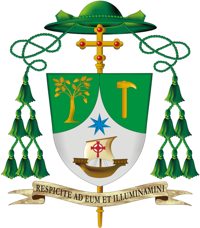The full text describing civil and canonical definitions of abuse in the Republic of Ireland and Northern Ireland can be found here. A brief outline of definitions for the Republic of Ireland (Children First Guidance, 2017) is given below.
Physical Abuse
When someone deliberately hurts a child physically or puts them at risk of being physically hurt. It may occur as a single incident or as a pattern of incidents. Physical abuse can include the following:
• Physical punishment;
• Beating, slapping, hitting or kicking;
• Pushing, shaking or throwing;
• Pinching, biting, choking or hair-pulling;
• Use of excessive force in handling deliberate poisoning;
• Suffocation;
• Fabricated/induced illness;
• Female genital mutilation.
Emotional Abuse
The systematic emotional or psychological ill-treatment of a child as part of the overall relationship between a caregiver and a child. Once-off and occasional difficulties between a parent/carer and child are not considered emotional abuse. Abuse occurs when a child’s basic need for attention, affection, approval, consistency and security are not met, due to incapacity or indifference from their parent or caregiver. Emotional abuse can also occur when adults responsible for taking care of children are unaware of and unable (for a range of reasons) to meet their children’s emotional and developmental needs.
Emotional abuse may be seen in some of the following ways:
• Rejection;
• Lack of comfort and love;
• Lack of attachment;
• Lack of proper stimulation (e.g. fun and play);
• Lack of continuity of care (e.g. frequent moves, particularly unplanned);
• Continuous lack of praise and encouragement;
• Persistent criticism, sarcasm, hostility or blaming of the child;
• Bullying;
• Conditional parenting in which care of a child depends on his or her behaviours or actions;
• Extreme over-protectiveness;
• Inappropriate non-physical punishment (e.g. locking child in bedroom);
• Ongoing family conflicts and family violence;
• Seriously inappropriate expectations of a child relative to his/her age and stage of development.
Neglect
Occurs when a child does not receive adequate care or supervision to the extent that the child is harmed physically or developmentally. It is generally defined in terms of an omission of care, where a child’s health, development or welfare is impaired by being deprived of food, clothing, warmth, hygiene, medical care, intellectual stimulation or supervision and safety.
The following are features of child neglect:
• Children being left alone without adequate care and supervision;
• Malnourishment: lacking food, unsuitable food or erratic feeding;
• Non-organic failure to thrive, i.e. a child not gaining weight due not only to malnutrition but also emotional deprivation;
• Failure to provide adequate care for the child’s medical and developmental needs, including intellectual stimulation;
• Inadequate living conditions – unhygienic conditions, environmental issues, including lack of adequate heating and furniture
• Lack of adequate clothing;
• Inattention to basic hygiene;
• Lack of protection and exposure to danger, including moral danger, or lack of supervision appropriate to the child’s age;
• Persistent failure to attend school;
• Abandonment or desertion.
Sexual Abuse
Occurs when a child is used by another person for his or her gratification or arousal, or for that of others. It includes the child being involved in sexual acts (masturbation, fondling, oral or penetrative sex) or exposing the child to sexual activity directly or through pornography.
An Garda Síochána will deal with any criminal aspects of a sexual abuse case under the relevant criminal justice legislation. The prosecution of a sexual violence against a child will be considered within the wider objective of child welfare and protection. The safety of the child is paramount and at no stage should a child’s safety be compromised because of concern for the integrity of a criminal investigation.
In relation to child sexual abuse, it should be noted that in criminal law the age of consent to sexual intercourse is 17 years for both boys and girls. Any sexual relationship where one or both parties are under the age of 17 is illegal. However, it may not necessarily be regarded as child sexual abuse.
Child Pornography
The Child Trafficking and Pornography Act 1998, which is amended by Section 6 of the Criminal Law (Sexual Offences) (Amendment) Act 2007, makes it an offence to possess, produce, distribute, print or publish child pornography.
Canon Law
In 2019 Pope Francis issued an Apostolic letter, entitled “Vos estis lux mundi” (May 2019) which updated the definitions; see the final section of the full document linked at the top of this page for full details.
